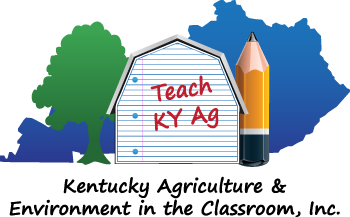Biotechnology, DNA & GMO Resources
We have had several requests to provide a list of resources to help students navigate both sides of this controversial issue. Since we believe it is fairly easy to find anti-GMO articles and videos, this page provides sources we feel provide a balanced approach to discussing the issue.
Encourage students to use this Guide for Understanding Informational Texts for taking notes.
If you have a suggestion for a resource to include, please email us.
NEW - FDA launches new web site to help the public understand Agricultural Biotechnology and GMOs
https://www.fda.gov/food/consumers/agricultural-biotechnology
How to Extract DNA from a Strawberry - Video and Step-by-Step guide
National Human Genome Research Institute (NIH)
Lessons
Create a Genetically Modified Organism (Secondary)
Developed by West Hardin Middle School teacher Leslie Meredity, students will explore why GMOs are created and then think of a food supply/production issue that may benefit from a fictitious GMO they create.
Biotechnology (9 Secondary Modules from Ohio Corn Growers)
What is the science behind biotechnology and genetic modification? Through 9 hands-on modules, students investigate DNA sentences, DNA corn extraction, Punnet squares, plasmid modeling, pipetting skills, GMO facts, plant tissue cultures, transforming bacteria DNA, and protein purifcation.
The Science of a GMO (9-12, National Ag in the Classroom)
Students will compare and contrast methods of selective plant breeding, describe the scientific process of creating a genetically modified plant, compare genetically modified soybean seeds to conventional soybean seeds, describe the impact weeds have on plant growth, and understand how a genetically modified seed can help farmers manage weeds.
Apples and the Science of Selection (9-12, National Ag in the Classroom)
Students will distinguish between natural and artificial selection and use a student-centered learning activity to see how science has used both asexual and sexual plant reproduction methods to first create different varieties of apples; and then to produce the final product commercially.
DNA: Expressions in Agriculture (6-8, Strawberry DNA Extraction)
This lesson centers around the activity of extracting DNA from a strawberry while highlighting careers in biotechnology and agriculture.
Evaluating GMO Perspectives Through Labeling (9-12)
While many view genetically modified crops as a promising innovation, there is controversy about their use. This lesson provides students with a brief overview of the technology, equipping them with the ability to evaluate the social, environmental, and economic arguments for and against genetically modified crops.
High Tech Food (6-8)
This lesson plan introduces the high-tech aspects of agricultural production and explores the related careers.
Looking Under the Label (9-12)
Students will evaluate food package labels, determine their meaning, and use the Claim, Evidence, and Reasoning model to determine the value of the label in relation to food production practices, nutrition, health, and food safety. Students will engage in critical thinking to recognize the impact of food package labels in relation to marketing, consumer perceptions of food, and farming practices.
Plasmid Problem Solving (9-12)
This lesson compares and contrasts prokaryotic and eukaryotic cells and examines the form and function of the plasmid found in prokaryotic cells. Students will then use these principles to simulate how a desirable gene can be isolated and inserted into a plasmid as one step in the process of creating a genetically modified organism (GMO).
Articles
Case by Case: The GMO Question - University of Kentucky
OPINION: When Genetic Engineering is the Environmentally Friendly Choice - Dr. Paul Vincelli, University of Kentucky
What is a GMO? - MentalFloss.com
Genetically Engineered Crops: Experiences and Prospects, report in brief - The National Academies of Science, Engineering, and Medicine
“Q&A on foods from genetically engineered plants” - US Food & Drug Administration
GMOs and Our Food - Science in the News, Harvard University
Frequent Asked Questions on Genetically Modified Foods - World Health Organization


